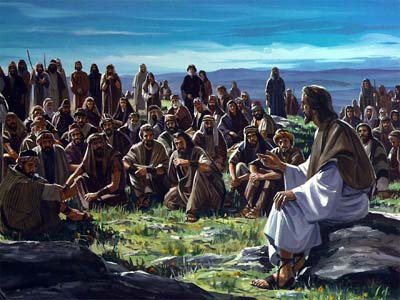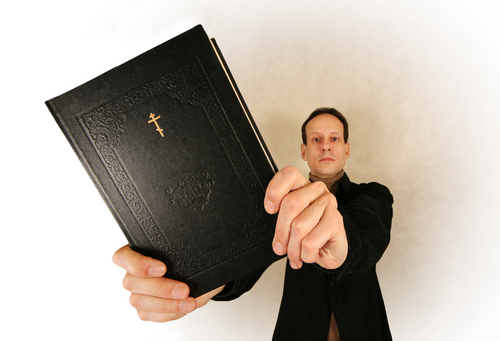The Second Coming of Christ is an erroneous idea that developed among Christians in the last third of the first century AD. It weakened the assurance that the first Christians had that the kingdom of God had come.
Many people are confused, angry, and worried about the future — while others feel their longest hoped-for political dreams have become reality. The air is full of tension, even on these sunny summer days, and it seems as if the nation has somehow cracked open.
I feel like we are being strangled, the life choked from us – disbelief, sorrow, fear, rage. Violence in the streets, jails, and cages at our border, targeting black and brown men, women, and children; a virus stalking us all, turning familiar comforts into threats.
As Christians we are called to love one another above all else, but what happens when we unwittingly bring in elements that illicit feelings of exclusion, rather than loving inclusion, among those at our worship services? Monette Chilson explores two practices with the potential to ostracize and calls us to reexamine them.
The church as we know it came about when one group of believers was opposed by a dissenting group. Then it became necessary for each group to define their concepts of Christianity and to label all others heretics.
The Greek word for “faith” in the New Testament is pistis, which occurs 243 times. As a noun, pistis is used as a technical term for “forensic evidence.” In other words, faith is not blind; we must investigate to establish the facts. I agree with retired Episcopal bishop, John Shelby Spong, who writes, “My problem has never been my faith. It has always been the literal way that human beings have chosen to articulate that faith.” To many Christians, faith means believing highly suspect claims, which is a problem for me. Thinking isn’t a sin. God created our minds and I’m certain that we were intended to use them.
Distributive justice-compassion, or “restorative” justice, argues that the rain falls on the just and the unjust, and that while the back-story may be compelling or repelling, violence is never the solution. When society’s protective systems “codify right from wrong, separating the holy from the profane,” who will call attention to the injustice that gets embedded in those very codes whose purpose is to protect and defend the safety and security of that society?
I think Christian missionaries should live among the people exhibiting their Christianity in their daily lives. If the people see something in their lives that is missing in their own lives they will ask about it, which gives the missionary permission to tell them about their faith.
For Christians grace is God’s gift of pardon. According to William Barclay the Greek word for grace was originally a military term. When an emperor came to the throne or celebrated a birthday, he would give his troops a donatirim (donation), which was a free gift that they had not earned; it was given out of the goodness of the emperor’s heart. This idea was picked up by the Christian scripture writers when they wrote about the grace of God. Grace is something that is unearned and undeserved – unmerited pardon.
Can we actually believe that because Eve persuaded Adam to eat a forbidden apple the entire human race is doomed to hell? Can we truly believe that for several thousand years there was no chance for any human to be saved, even though none of them had anything to do with Adam and Eve’s disobedience in the Garden? Isn’t it ludicrous that a child born today is doomed because Adam and Eve disobeyed God? That creation/damnation scheme sounds more like devil-worship than God-worship.
Easter calls attention to the traditional, fundamental “beliefs” associated with the Christian religion – if only for a day. The secular world pays little attention to the nuances of Christian “faith” in a post-Christian world. Easter is a liturgical season that lasts for seven weeks. In Christian tradition, the time between the resurrection of Jesus and his “ascension” into the sky (Pentecost) replaces the time between the Jewish Feast of the Passover and the giving of the law to Moses on Mt. Sinai. Not only do most Christians concentrate on the resurrection story – often literally. Editorial writers for supposedly sophisticated secular media seem to feel obligated to attempt to find meaning in the traditional religious legend of a dead man walking out of his tomb. But “faith” does not mean “belief.” “Faith” means “trust.” “Faith” further means “confidence.”
I've titled this as about the Resurrection, which is just one part of a complex of beliefs... but let's return and end there... What similarities or differences do you see in Paul's Resurrection statements and beliefs and those of the early Jerusalem Jesus-followers?
Paul insists, "It is for freedom that Christ has set us free." Yes, freedom. Paul was the Apostle of human freedom.
In her latest update, Sea Raven reinforces the notion that the Gospels must be read through the lens of the genuine Pauline letters.
The possibility that Jesus’s message was one of radical fairness, and that following Jesus means creating and living in a world based on non-violent covenant instead of desperate selfishness, has certainly been hidden from view since before Luke decided to tell the story. It’s time to give the presidents and prime ministers of today the chance to see and hear the alternatives to imperial, retributive, business-as-usual. It’s time to offer viable alternatives to the feel-good, prosperity-based, exclusive, self-righteousness that passes for evangelism on the right. As liberal pundit Keith Olbermann has suggested, it’s time for some non-violent democratic action.
























